EASD ECA Mentorship Programme - First Hand Feedback
We have reached out to participants of the EASD Early Career Academy Mentorship Programme for their feedback. May their stories inspire you to apply for upcoming rounds of our Mentorship Programme.
EASD ECA Mentorship Programme - First Hand Feedback
We have reached out to participants of the EASD Early Career Academy Mentorship Programme for their feedback. May their stories inspire you to apply for upcoming rounds of our Mentorship Programme.
This 1-year programme connects early-career researchers and clinicians with established mentors to accelerate career development, foster collaboration, and expand professional networks in the diabetes field.
Apply by Monday, 5 May 2025 to accelerate your career!

"The mentorship has offered me valuable insights into a career path of a clinician with esteemed merits in science, on working style, and on work-life balance. I have gained confidence to mentor my own students and lead projects independently. While valuing the invaluable insights and contributions of others, I now strive to focus on what I believe is most impactful in my field."
Sini Heinonen
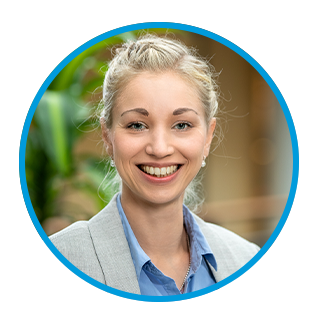 I am a Resident in Internal Medicine and Adjunct Professor in Experimental Internal Medicine at the Obesity Research Unit, Helsinki University Hospital and University of Helsinki, Finland. My current research focuses on finding molecules and mechanisms that are increased in plasma after bariatric surgery and can activate human adipose tissue mitochondrial energy metabolism for effective weight loss and sustained insulin sensitivity.
I am a Resident in Internal Medicine and Adjunct Professor in Experimental Internal Medicine at the Obesity Research Unit, Helsinki University Hospital and University of Helsinki, Finland. My current research focuses on finding molecules and mechanisms that are increased in plasma after bariatric surgery and can activate human adipose tissue mitochondrial energy metabolism for effective weight loss and sustained insulin sensitivity.
In general, my research interests aim at integrating clinical practice, pharmacological trials, and advanced molecular techniques aiming to unravel the interactions between the gut-brain-liver axis and peripheral tissue mitochondrial energy metabolism in obesity, weight loss and metabolic disorders.
I applied for the Early Career Academy Mentorship Programme as I encountered various challenges with running the projects where I am responsible, such as balancing a clinical career with academic and research responsibilities and with a family of two small children, hiring the right personnel for the project, securing independent funding, and managing collaborations. I wanted to create collaborations outside of my research group and to learn from an esteemed researcher and clinician.
Through the exchange with my mentor Mikael Rydén, I have gained valuable insights into a career path of a clinician with esteemed merits in science, on working style, and on work-life balance. I have gained confidence to mentor my own students and lead projects independently. While valuing the invaluable insights and contributions of others, I now strive to focus on what I believe is most impactful in my field.
I have come to understand the importance of developing unique skills, ideas, and perspectives to establish my own expertise and carve out a distinct research niche.

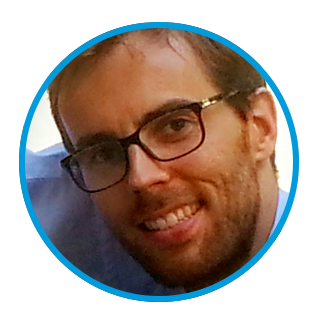 I am a researcher working on metabolism and diabetes using mathematical models and big data analyses.
I am a researcher working on metabolism and diabetes using mathematical models and big data analyses.
The challenges that inspired me to apply for the Early Career Academy Mentorship Programme were the necessity to build a research team to lead, to understand priorities in my work, and to acquire independency.
Being connected to Dr. Miriam Udler allowed me to envisage new personal research frontiers, to enter a network of top-level researchers in my field, and to be more ambitious in my research activities. She helped me to evaluate my past research activity from an external point of view, and to see natural ways to follow up, expanding the usage of data and methods and research questions to consider. I think these elements will be very important for my future scientific career.
I benefited from being in contact with a renowned scientist in my research field, which made me feel more self-confident, ambitious and positive with respect to my future professional development.
"Being connected to my mentor allowed me to envisage new personal research frontiers, to enter a network of top-level researchers in my field, and to be more ambitious in my research activities."
Roberto Bizzotto

"The mentorship has shaped my perspective and practical ways of organizing my work, regularly reflecting on priorities and future steps, being more open and proactive towards research opportunities."
Barbora Hagerf
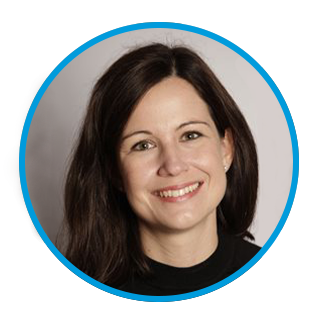 I am currently working as a supervising physician at the inpatient clinic of the Department of Diabetes and finishing my PhD degree in the field of beta cell replacement therapy and pancreas transplantation focused on diabetes complications evolvement after transplant therapy.
I am currently working as a supervising physician at the inpatient clinic of the Department of Diabetes and finishing my PhD degree in the field of beta cell replacement therapy and pancreas transplantation focused on diabetes complications evolvement after transplant therapy.
Besides that, my research interest is in diabetes technology, CGM, implementing technology in the inpatient setting, and also the topic of hypoglycaemia, both in the pathophysiological area and clinical management.
At this stage of my career, I have been struggling for a while to balance my clinical work and research projects, and the mentorship with Julia Mader inspired and encouraged me that this is possible. It has shaped my perspective and practical ways of organizing my work, regularly reflecting on priorities and future steps, being more open and proactive towards research opportunities. It also helped me to expand my network in the field for possible cooperations.
I received a lot of encouragement throughout the mentorship. Especially during my visit in Graz, I could learn from Julia's experience and dedication. Finally, when I got interested in the GlucoTab project, Julia promptly got me in contact with the people involved and we joined a European Union Funded Grant Project aiming at implementing the software with algorithm to adjust insulin doses in hospitalized patients in other countries.
Now I am responsible for the grant management in our hospital, and we have started working on translation and implementation of the software, which will be followed by a small clinical trial to assess its impact in hospitalized patients with diabetes.

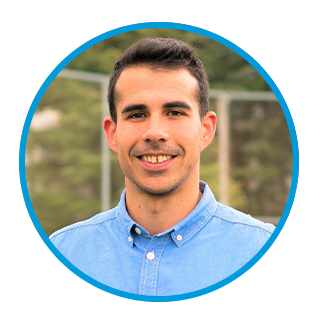 I am currently a postdoctoral researcher and principal investigator at the Institute of Human Movement Science, Sport and Health, at the University of Graz in Austria with a research interest in exercise, pregnancy and diabetes.
I am currently a postdoctoral researcher and principal investigator at the Institute of Human Movement Science, Sport and Health, at the University of Graz in Austria with a research interest in exercise, pregnancy and diabetes.
I applied for the Early Career Academy Mentorship Programme as I encountered various challenges with running the project where I am a principal investigator, such as securing additional funding, and managing the established collaborations. I also faced methodological uncertainties that were difficult to resolve due to the novelty of our work.
My mentor, Prof. Helen Murphy, has provided invaluable guidance on the methodological aspects of the project. Her input has helped me refine specific analyses related to continuous glucose monitoring and highlighted key limitations we need to consider.
Working with my mentor has helped me to optimize several methodological procedures and focus on high-priority aspects when conducting assessments with pregnant women with type 1 diabetes. Moreover, this guidance has also made me realized that patience is very important when working in special populations like pregnant women with type 1 diabetes and type 2 diabetes, where strong collaborations with clinicians are essential.
Engaging in discussions and receiving feedback from my mentor, made me recognize that I am not only meeting expectations but am on the right path which helped me developing a strong sense of confidence in my role as a principal investigator.
"I applied for the Mentorship Programme as I encountered various challenges with running the project where I am a principal investigator.
Engaging in discussions and receiving feedback from my mentor, made me recognize that I am not only meeting expectations but am on the right path which helped me developing a strong sense of confidence in my role as a principal investigator."
Pedro Pablo Acosta Manzano

"With my mentor, we are considering new research questions and ways to tackle them to cast light on the role of the brain in insulin resistance.
He helps me think out of my box and become independent as a researcher."
Giovanni Fanni
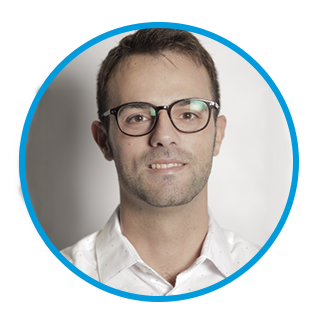 I am a medical resident in Internal Medicine at Uppsala University Hospital and PhD student at Uppsala University. My research interests are the role of the brain in glucose homeostasis and the impact of obesity surgery on the brain and the endocrine system. Research is the more exciting and fruitful the more people are involved in a project.
I am a medical resident in Internal Medicine at Uppsala University Hospital and PhD student at Uppsala University. My research interests are the role of the brain in glucose homeostasis and the impact of obesity surgery on the brain and the endocrine system. Research is the more exciting and fruitful the more people are involved in a project.
The challenge that motivated me to look for a mentor was the strive to create collaboration networks outside of my research group. From a mentor, I expected inspiration and motivation to face new research challenges.
I met my mentor, Prof. Martin Heni, online. We have not met in person yet but we plan to do it, both at the EASD Annual Meeting and at his institution. With my mentor, we are considering new research questions and ways to tackle them to cast light on the role of the brain in insulin resistance. He helps me think out of my box and become independent as a researcher.
The EASD Early Career Academy Mentorship programme provided the possibility to create a new research collaboration and the opportunity to start thinking as an independent researcher.

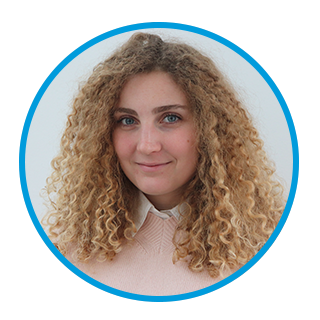 I am a Resident in Endocrinology and Metabolic Disease at the Catholic University of Rome, with a strong interest in diabetes pathophysiology, beta-cell function, and the relationship between exocrine and endocrine function.
I am a Resident in Endocrinology and Metabolic Disease at the Catholic University of Rome, with a strong interest in diabetes pathophysiology, beta-cell function, and the relationship between exocrine and endocrine function.
One of the main challenges I faced in my career was gaining a deeper understanding of basic science and how to apply it to resolve clinical questions. This challenge inspired me to seek a mentor who could introduce me to the world of basic science, particularly regarding diabetes and its pathophysiology.
I had the opportunity to work in Prof. Heiko Lickert's laboratory at the Institute of Diabetes and Regeneration Research. This allowed me to collaborate directly with expert scientists in the field and to develop a translational project that I am currently carrying on.
My mentor's support has been crucial for my scientific and professional development. He provided me with the opportunity to work side by side with experts in his lab, offering invaluable practical and educational experience. Additionally, thanks to the EASD Early Career Academy Mentorship Programme, I had the chance to work in an international environment, which has greatly enriched my training and perspectives.
"My mentor's support has been crucial for my scientific and professional development.
He provided me with the opportunity to work side by side with experts in his lab, offering invaluable practical and educational experience."
Gea Ciccarelli

"The most significant benefit of the Mentorship Programme was the tailored guidance and support from a seasoned expert in my field.
This mentorship not only enhanced my research capabilities but also boosted my confidence in pursuing ambitious career goals."
Alfredo Caturano
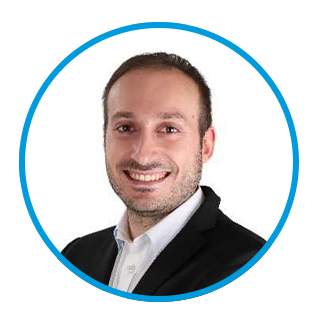 I am currently a PhD candidate at the Department of Advanced Medical and Surgical Sciences, University of Campania “Luigi Vanvitelli”, where my research focuses on diabetes, diabetes complications (especially liver), and cardiovascular risk.
I am currently a PhD candidate at the Department of Advanced Medical and Surgical Sciences, University of Campania “Luigi Vanvitelli”, where my research focuses on diabetes, diabetes complications (especially liver), and cardiovascular risk.
As an early-career researcher, I have faced several challenges, including navigating the complexities of securing research funding, publishing in high-impact journals, and establishing a robust professional network. I sought a mentor to gain insights into overcoming these obstacles and to receive guidance on strategic career planning, including grant writing, manuscript preparation, and effective networking within the scientific community.
I connected with my mentor, Prof. Jan Gojda, through the EASD Early Career Academy. Our interactions were primarily conducted through online meetings, which proved to be flexible and efficient. Additionally, we had the opportunity to meet in person when I started a three-month stay at Charles University in Prague in February 2024, further strengthening our professional relationship.
My mentor provided invaluable support in several areas. He offered critical feedback on my research proposals and manuscripts, significantly improving the quality and impact of my work. He also shared his experiences and strategies for successful grant applications and introduced me to key figures in the field, thereby expanding my professional network. His mentorship included advice on balancing research with other professional responsibilities, which has been instrumental in my career development.
The structured yet flexible nature of the programme allowed me to address specific challenges and develop a clear, strategic plan for my professional growth. The opportunity to discuss my progress and receive constructive feedback regularly was incredibly valuable and contributed to a productive and enriching experience.

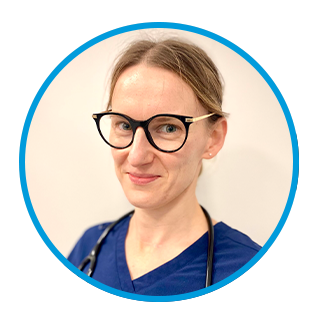 I am a medical doctor specialized in diabetology. Throughout my academic and professional career, I primarily worked in a diabetology unit in my hometown, learning from mentors at my local university. Before applying to the EASD Early Career Academy Mentorship Programme, I was fortunate to engage in international collaborations on two research projects, which significantly enriched my scientific perspective.
I am a medical doctor specialized in diabetology. Throughout my academic and professional career, I primarily worked in a diabetology unit in my hometown, learning from mentors at my local university. Before applying to the EASD Early Career Academy Mentorship Programme, I was fortunate to engage in international collaborations on two research projects, which significantly enriched my scientific perspective.
Seeking further growth, I applied to the Mentorship Programme to observe and learn from an established scientist’s career, aiming to broaden my understanding of future opportunities and better navigate my clinical and scientific career paths. At the time of application, I faced challenges such as limited insight into the career paths of colleagues in different countries and health care systems, expectations to secure funding for well-defined research, and balancing a clinical career with academic and research responsibilities.
Upon being selected for the Programme, I chose Dr. Claudia Cavelti-Weder as my mentor. Her experience as a medical doctor who seamlessly integrates academic and research commitments made her an ideal mentor. Although we mostly communicated online, we met in person at the EASD Annual Meeting 2023 in Hamburg.
The Mentorship Programme is ongoing, but it has already offered me valuable insights into her career path, working style, and work-life balance. Moreover, Dr. Cavelti-Weder assured me that it is worth following the chosen scientific path, because the effects, even if they come slowly, ultimately make us move forward.
"My application was driven by my longstanding interest in the EASD Early Career Academy's activities since its inception at the EASD Annual Meeting 2022 in Stockholm. I have actively participated in webinars, journal clubs, and other ECA activities.
These experiences have not only enhanced my scientific knowledge but also expanded my professional network."
Agata Grzelka-Woźniak
Want to learn more about the EASD Early Career Academy Mentorship Programme? Have a look at the programme outline and upcoming application deadlines: